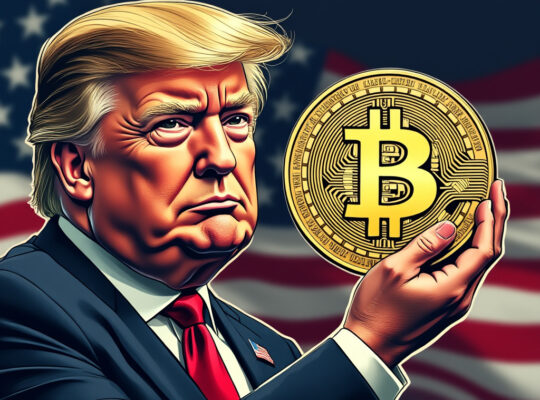As of October 1, 2024, a significant strike involving dockworkers along the U.S. East and Gulf coasts has commenced, marking a pivotal moment for the American economy and, by extension, global markets. This strike, affecting over 45,000 workers, is not just a labor dispute but a potential catalyst for economic turbulence across various sectors, including the burgeoning cryptocurrency market.
Immediate Economic Impact
The strike’s immediate impact on the economy is estimated at billions per day. Analysts from major financial institutions, like JPMorgan, have projected a daily economic loss between $3.8 to $5 billion due to halted operations at crucial ports responsible for over half of the nation’s container trade. This stoppage disrupts supply chains for everything from consumer goods to industrial equipment, potentially leading to shortages, delayed shipments, and increased costs for businesses and consumers.
Inflation and Consumer Goods
The ripple effect of this strike could exacerbate inflation, which has been a concern for policymakers. With goods backing up at ports, the cost of warehousing, transportation, and eventually, retail could see a sharp uptick. Products like food, electronics, and clothing, which rely heavily on these ports for importation, might witness price surges or temporary unavailability.
The Crypto Market Reaction
In the realm of cryptocurrencies, which often react to broader economic sentiments, the strike’s impact could be multifaceted:
- Volatility in Prices: Historically, economic uncertainty leads investors to seek safe havens. While Bitcoin and other major cryptocurrencies might not fit the traditional ‘safe haven’ asset category, they do attract investors looking for hedges against inflation or economic downturns. The strike might lead to increased volatility in crypto prices as investors reassess market conditions.
- Increased Interest in Stablecoins: With potential inflation spikes, there might be an uptick in the use of stablecoins, which are pegged to traditional currencies like the dollar. These could serve as a means to preserve value during economic fluctuations.
- Liquidity Concerns: If the strike leads to broader economic slowdown or panic, liquidity in crypto markets might decrease, affecting trading volumes and possibly leading to price drops if investors pull out to cover other financial obligations.
- Regulatory Considerations: The economic pressure from the strike could push governments to expedite regulatory frameworks for cryptocurrencies, like the EU’s MiCA, seeing them as a way to diversify economic risks or fund liquidity through digital asset markets.
Long-term Economic and Market Adjustments
The strike’s long-term effects might lead to:
- Infrastructure Investment: There could be a push towards improving port infrastructure or diversifying logistics to reduce dependency on East and Gulf Coast ports, potentially benefiting sectors like construction and technology.
- Crypto as a Response: Businesses might explore blockchain for supply chain logistics, enhancing transparency and efficiency, which could inadvertently boost blockchain technology investments.
- Policy Shifts: The government might intervene with emergency measures or reconsider labor laws, influencing how economic policies affect both traditional and digital markets.
The dockworkers’ strike serves as a reminder of the interconnectedness of modern economies. Its impact on traditional markets directly influences the environment in which cryptocurrencies operate. While the crypto market might initially see increased volatility, the long-term might push towards greater integration and innovation in economic systems, potentially favoring blockchain technologies. As the situation unfolds, both traditional and digital market watchers will be keenly observing how economic policies, business strategies, and investor behaviors adapt to these new realities.
Disclaimer: This article is intended for informational purposes only and does not constitute financial or investment advice. The outcomes discussed are speculative and can vary significantly based on numerous factors. Readers are encouraged to conduct their own research or consult with financial advisors before making any investment decisions.












